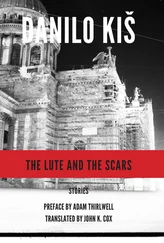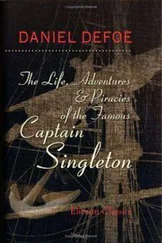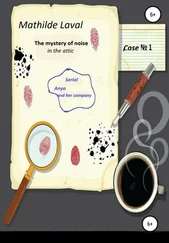Danilo Kiš - The Attic
Здесь есть возможность читать онлайн «Danilo Kiš - The Attic» весь текст электронной книги совершенно бесплатно (целиком полную версию без сокращений). В некоторых случаях можно слушать аудио, скачать через торрент в формате fb2 и присутствует краткое содержание. Год выпуска: 2012, Издательство: Dalkey Archive Press, Жанр: Современная проза, на английском языке. Описание произведения, (предисловие) а так же отзывы посетителей доступны на портале библиотеки ЛибКат.
- Название:The Attic
- Автор:
- Издательство:Dalkey Archive Press
- Жанр:
- Год:2012
- ISBN:нет данных
- Рейтинг книги:4 / 5. Голосов: 1
-
Избранное:Добавить в избранное
- Отзывы:
-
Ваша оценка:
- 80
- 1
- 2
- 3
- 4
- 5
The Attic: краткое содержание, описание и аннотация
Предлагаем к чтению аннотацию, описание, краткое содержание или предисловие (зависит от того, что написал сам автор книги «The Attic»). Если вы не нашли необходимую информацию о книге — напишите в комментариях, мы постараемся отыскать её.
Bildungsroman
The Attic — читать онлайн бесплатно полную книгу (весь текст) целиком
Ниже представлен текст книги, разбитый по страницам. Система сохранения места последней прочитанной страницы, позволяет с удобством читать онлайн бесплатно книгу «The Attic», без необходимости каждый раз заново искать на чём Вы остановились. Поставьте закладку, и сможете в любой момент перейти на страницу, на которой закончили чтение.
Интервал:
Закладка:
Orpheus , a note read, why do you claim the right to suffer for yourself alone. .? I waited for you until 9:30. I could tell by your lute what kind of shape you’re in. Can’t you even . .
I couldn’t read the rest.
So there we have it, Igor. A few light-years older, but so young, and so bitter.
And what would have become of us if we had kept on acting and pretending?
You know very well, Capricorn, that I wouldn’t have lasted very long rolling up my sleeves and drinking mineral water and smoking filtered cigarettes.
What would we be like without journeys, without conversations?
How would I fare without my lute, without Eurydice?
“You have to look at things realistically, dear fellow, realistically ,” said the man whom we are here calling Billy Wiseass or some such thing.
“I agree with you completely,” I said. “But don’t forget, my good man, that it is especially necessary for people like us: artists. And even for you, the astronomers, too. Through the twinkling of the stars you’re supposed to glean hints of the aroma of the astral humus, the social composition and political structure of the galaxies. After all. .”
“You’re wrong,” he said. “The point is not to intuit an object, as you say, but rather to investigate it, tangibly , to touch it and feel it. Without any sort of guesswork, my dear fellow.”
“What do you mean?” I asked. “I assume you can’t feel the stars with your hand as you would the udder of a cow.”
“Why is it that you always want to be witty, at all costs? I’m tempted to say: a professional wit.”
“Out of egoism,” I said. “That is to say — by mistake. In actuality, fate has allotted to you the role of reasoner and wiseass (your name states as much), just as I have been given the lute as my lot. .”
“I’ve had it up to here with that lute of yours. A stupid, pompous, antiquarian symbol.”
“ It is not a symbol at all! ” I said.
“What the hell is it, then, if not a symbol?”
“A lute ,” I said.
He waved his hand dismissively: take a hike.
We walked on in silence for some time. We were still such good friends that the silence didn’t bother us. The hollow clatter of our footsteps hardly made us flush with embarrassment.
“Take a look at this, Igor,” I said, pointing at a large yellow poster.
Or was it he who pointed at the big yellow poster and said: “Take a look at this, Lute-meister. .”?
At any rate, the poster was there, yellow, damp with fresh glue and rain, looking like some enormous rose petal. On it was written, in beautiful black letters:

“Let’s go, Capricorn,” I said.
Or he said: “Off we go, guitar-meister.”
At any rate, we headed in that direction. .
At the door they asked to see our passes. Igor pulled out a thousand-dinar note and slipped it into the man’s hand. The guy took a look at us and then gave us two pornographic postcards; the program was printed on the back of them, along with the words “No Admittance Under Sixteen Years of Age.”
“No matter,” I said. “I would make a point of attending out of professional curiosity, even if I were under sixteen. .”
Billy the Goat laughed. “That’s a good way to put it,” he said.
“ Flowers grow on the dung-heap ,” I said sagely.
“What do you mean by that? What kind of flowers?”
“Nothing, nothing. I was just thinking out loud. Besides. .”
“Why do you always stumble to a stop before you finish your thought?” he said. “What kind of flowers are at issue here?”
“The ones that are sprouting from me. With their roots in my heart and their blossoms in the sunlight. With their pollen in my eye. . Those are the ones.”
?!
After some sort of incident — I don’t remember what — Eurydice either couldn’t or didn’t want to come see me in the attic anymore. Maybe it was after that note she’d left me while I’d been licking my plate clean in some pub. I don’t know. I no longer even know if that attic ever existed or if I just conjured it up. And I also don’t know if Eurydice ever climbed up into that attic through that narrow, dirty stairwell, where the cockroaches rustle about when the light catches them by surprise. Then, with a light crack, they squish under your feet like berries. A little greasy spot remains; it spreads out and becomes darker the farther it gets from the epicenter of the eruption. I don’t know — I don’t believe — that she ever climbed those filthy steps. But then where did that slip of paper come from, which I found at some point under the bell jar next to the rocking chair? Maybe she passed the note to the cleaning lady downstairs in the hall, and then she put it under the bell jar so the rats wouldn’t shred it like lettuce. Who knows if I ever really read this note? Or whether she, Eurydice, really wrote it with her own hand. But I can’t believe that I planted this note here myself. For God’s sake, how would I have been able to imitate her handwriting so skillfully. .? It truly was odd handwriting. And worthy of further comment. At first glance it resembled Sanskrit. To tell the truth, I’ve never actually seen Sanskrit, but in any case I think that Eurydice’s handwriting has its roots in some secret dream. In places her writing was utterly illegible. All the consonants looked like a single letter, which looked like all of them together, so that you could never determine precisely which was intended. Each and every vowel was also written identically, with the one difference that you could at least produce its sound: that eternal letter — a multitude of circular, oval, large-eyed and bewitched letters rolled around between those indeterminate, exotic consonants. Come to think of it, everything she wrote looked like it contained only one and the same imperishable letter, so that her words, once written, scrolled past like a vague tolling of bells. But I never had sufficient time then to ponder all this. I was always completely preoccupied with deciphering her notes, which I found unexpectedly here and there, most frequently right in the attic upon returning from my travels. These really weren’t missives in the true sense of the word. On a slip of paper ripped from a memo pad she would string together a necklace of sighs, with pretty much every other little square containing either an O , or a kiss, or a tear, or an eye. It all depends on who’s reading them, and how. And of course on what the word denotes outside of its pictorial meaning. Such a letter-kiss, a letter-poem, had ten, or a hundred, variants and interpretations, and I believe that my fate was sealed by one such misunderstanding. I would remind you of that well known, historic misunderstanding which resulted in the godhead being represented with horns instead of a halo; thus Moses became a garden-variety cuckold, ridiculed in secret by everyone in the neighborhood — beginning, of course, with the cleaning lady. And the fact that one venerates him in public, or even prays to him — that is, I believe, the result of hypocrisy. But one should not forget to observe a moment of pathetic reverence: even a cuckolded godhead does inspire respect, after all.
“You’ve really gotten carried away, Cuckold,” said Igor, peering over my shoulder. “I’d bet my life that you no longer know what you’re talking about.”
“I do know,” I said, offended. “About the horns! And next time don’t stick your nose into my papers.”
“What horns are you talking about?” he said. “About yours? That’s obviously the reason you started hiding your papers from me.”
Читать дальшеИнтервал:
Закладка:
Похожие книги на «The Attic»
Представляем Вашему вниманию похожие книги на «The Attic» списком для выбора. Мы отобрали схожую по названию и смыслу литературу в надежде предоставить читателям больше вариантов отыскать новые, интересные, ещё непрочитанные произведения.
Обсуждение, отзывы о книге «The Attic» и просто собственные мнения читателей. Оставьте ваши комментарии, напишите, что Вы думаете о произведении, его смысле или главных героях. Укажите что конкретно понравилось, а что нет, и почему Вы так считаете.












